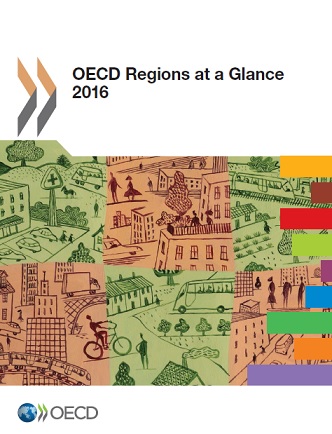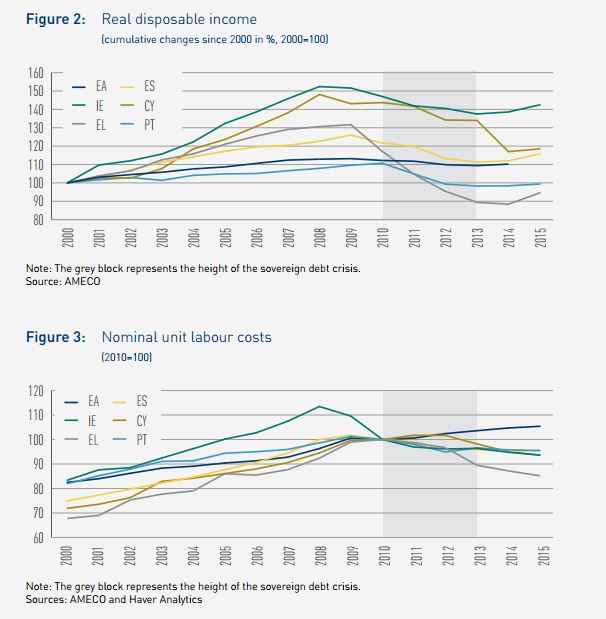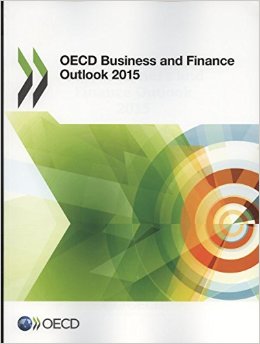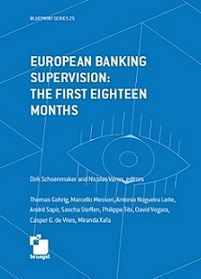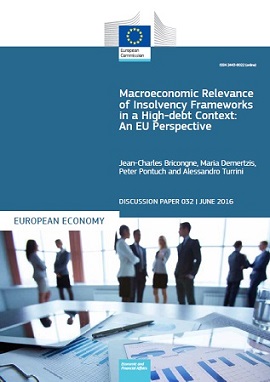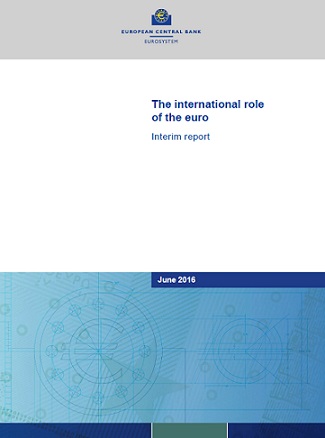Christodoulakis, Nicos, Axioglou, Christos, (2016), “Underinvestment and unemployment: the double hazard in the Euro Area”, Bank of Greece, Απρίλιος An alarming legacy of the austerity programs in the euro area is the vast disinvestment that has taken place over the recent years, and especially so in the peripheral economies. Unless it is quickly reversed, disinvestment not only hinders long-term growth but also undermines the prospects of a gradual reduction of unemployment …Read More
Greenfield Foreign Direct Investment and Structural Reforms in Europe: what factors determine investments?
Canton, Erik, Solera, Irune, (2016), “Greenfield Foreign Direct Investment and Structural Reforms in Europe: what factors determine investments?”, European Commission, Discussion Paper 033, Ιούνιος Greenfield FDI flows into EU countries account for a non-negligible share of total EU FDI. They create new capital assets and additional production capacity which are important elements to support the transition to a stronger European growth path. This project investigates determinants of greenfield FDI flows into …Read More
OECD Regions at a Glance 2016
OECD, (2016), “OECD Regions at a Glance 2016”, OECD Publishing, 16 Ιουνίου OECD Regions at a Glance shows how regions and cities contribute to national economic growth and well-being. This edition updates more than 40 region-by-region indicators to assess disparities within countries and their evolution over the past 15 years. The report covers all the OECD member countries and, where data are available, Brazil, People’s Republic of China, Colombia, India, …Read More
Annual Report 2015
European Stability Mechanism, (2016), “Annual Report 2015”, Ιούνιος The year 2015 was a difficult but also successful one for the European Stability Mechanism (ESM). Greece was the chief challenge. While Cyprus emerged strengthened from its ESM loan programme in March 2016, and the other former ESM or European Financial Stability Facility (EFSF) programme countries shone as economic bright spots, Greece remained an exception. At the start of 2015, Greece’s second …Read More
OECD Business and Finance Outlook 2016
OECD, (2016), “OECD Business and Finance Outlook 2016”, OECD, 9 Ιουνίου It is seven years since the global crisis and despite easy monetary policy, financial regulatory reform, and G20 resolutions favouring structural measures, the world economy is not making a lot of progress. Indeed, the responses to the crisis seem mainly to have stopped the banks from failing and then pushed the many faces of the crisis around between regions—currently …Read More
Automatic Fiscal Stabiliser: Make it happen!
Andor, László, Hess, Regula, (2016), “Automatic Fiscal Stabiliser: Make it happen!”, European Policy Centre, 2 Μαΐου The eurozone crisis triggered a whole new series of innovations in EU economic governance in order to make the Union more resilient for the next economic downswing. But one of the more persistent issues are the socio-economic divergences between member states, identified by the Five Presidents’ Report as a major problem in the functioning of the Economic and …Read More
European banking supervision: the first eighteen months
Schoenmaker, Dirk, Véron, Nicolas, (2016), “European banking supervision: the first eighteen months”, Bruegel, 8 Ιουνίου European banking supervision, also known as the Single Supervisory Mechanism, is the first and arguably the main component of European banking union. In late 2014, the European Central Bank became the supervisor for the region’s largest banking groups; the ECB also oversees the supervision by national authorities of smaller banks. This Blueprint is the first in-depth study of how …Read More
Macroeconomic Relevance of Insolvency Frameworks in a High-debt Context: An EU Perspective
Bricongne, Jean-Charles, Demertzis, Maria, Pontuch, Peter, Turrini, Alessandro, (2016), “Macroeconomic Relevance of Insolvency Frameworks in a High-debt Context: An EU Perspective”, European Commission, Discussion Paper 032, Ιούνιος The high level of private debt in many EU countries has put a spotlight on the role that insolvency frameworks can play in helping to address debt overhangs and clean bank balance sheets of nonperforming loans. This paper reviews the macroeconomic relevance of insolvency frameworks from an …Read More
The international role of the euro
European Central Bank, (2016), “The international role of the euro”, ECB, Ιούνιος This 15th annual review of the international role of the euro published by the ECB is an interim version that presents a concise overview of developments in the use of the euro by non-euro area residents. The period covered by this report is 2015 and early 2016. The developments seen in the international role of the euro during …Read More
Eurofound yearbook 2015: Living and working in Europe
Eurofound, (2016), “Eurofound yearbook 2015: Living and working in Europe”, Publications Office of the European Union, Μάιος Eurofound celebrated the 40th anniversary of its founding in 2015. In 1975, the then European Community set up the Agency, charging it with the task of contributing to the planning and design of better living and working conditions in Europe. The social policy agenda and priorities may have changed over those 40 years, …Read More






